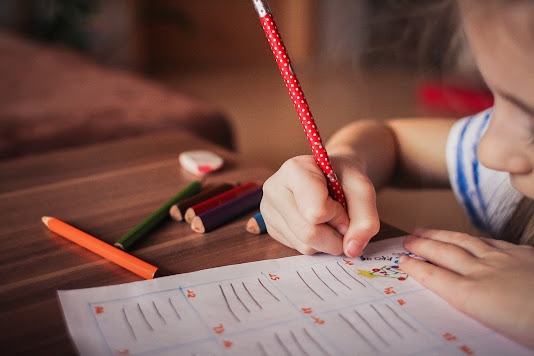Mental Health in Children / Adolescents
Child and Adolescent Mental Health Awareness
"Mental health awareness for children and adolescents focuses on understanding, recognizing, and addressing their emotional, psychological, and social well-being. This topic has gained significant attention as research highlights the prevalence of mental health challenges in young people and their long-term impacts if left unaddressed. Below is an overview based on current insights and widely recognized principles.
Importance of Awareness
- Prevalence: Globally, mental health conditions affect a substantial number of youth. For instance, it’s estimated that 10-20% of children and adolescents experience mental health disorders, with half of all lifetime mental illnesses beginning by age 14 (World Health Organization, 2021).
- Early Intervention: Awareness promotes early identification and support, which can mitigate severe outcomes like academic struggles, substance abuse, or chronic mental illness in adulthood.
- Stigma Reduction: Educating communities—parents, educators, and peers—helps normalize conversations about mental health, reducing stigma and encouraging help-seeking behavior.
Common Mental Health Issues
Children and adolescents face a range of mental health challenges, including:
- Anxiety Disorders: Excessive worry or fear, often manifesting as social anxiety, separation anxiety, or generalized anxiety. Signs include restlessness, avoidance, or physical complaints like stomachaches.
- Depression: Persistent sadness, loss of interest, or irritability. In teens, this might appear as withdrawal, changes in sleep/eating patterns, or thoughts of self-harm.
- Attention-Deficit/Hyperactivity Disorder (ADHD): Difficulty sustaining attention, impulsivity, or hyperactivity inappropriate for age, impacting school and relationships.
- Behavioral Disorders: Such as Oppositional Defiant Disorder (ODD) or Conduct Disorder, marked by defiance, aggression, or rule-breaking.
- Trauma and Stress-Related Disorders: Often linked to experiences like abuse, neglect, or loss, leading to symptoms like flashbacks or emotional numbness.
- Eating Disorders: Conditions like anorexia or bulimia, more common in adolescence, tied to body image and control issues.
- Substance Use: Increasingly relevant in adolescence, often as a coping mechanism for underlying mental health struggles.
Developmental Considerations
- Childhood (Ages 5-12): Mental health issues may show through behavior (e.g., tantrums, school refusal) rather than verbal expression due to limited emotional vocabulary. Play therapy or family involvement is often key.
- Adolescence (Ages 13-18): Hormonal changes, identity formation, and peer pressure amplify vulnerability. Teens may articulate feelings better but face unique risks like social media influence or self-harm.
Signs to Watch For
Awareness hinges on recognizing red flags, which vary by age but include:
- Persistent mood changes (e.g., sadness, anger, or apathy).
- Sudden drops in school performance or social withdrawal.
- Changes in sleep, appetite, or energy levels.
- Physical symptoms without medical cause (e.g., headaches).
- Risky behaviors, like substance use or aggression.
- Expressions of hopelessness or suicidal thoughts—critical warning signs requiring immediate action.
Risk Factors
- Biological: Genetics, brain chemistry, or prenatal exposure to stress/toxins.
- Environmental: Poverty, family conflict, bullying, or trauma (e.g., adverse childhood experiences, or ACEs).
- Social: Isolation, discrimination, or excessive screen time, with studies linking social media to increased anxiety and depression in teens.
Protective Factors
- Supportive Relationships: Strong bonds with family, teachers, or peers buffer against mental health issues.
- Resilience Skills: Teaching coping strategies, like problem-solving or emotional regulation, fosters adaptability.
- Access to Care: Availability of mental health services, including school counselors or therapists, is vital.
Raising Awareness
- Education: Schools and communities can host workshops or campaigns (e.g., Mental Health Awareness Week) to teach about mental health. Age-appropriate materials—like books for kids or apps for teens—help.
- Parental Role: Parents need tools to spot issues and talk openly with kids, avoiding judgment. Resources like the American Academy of Child and Adolescent Psychiatry (AACAP) offer guidance.
- School Programs: Integrating mental health into curricula or providing on-site support (e.g., counselors) normalizes care. Initiatives like mindfulness or peer support groups show promise.
- Public Campaigns: Events like World Mental Health Day (October 10) or platforms like the National Alliance on Mental Illness (NAMI) amplify visibility.
Challenges
- Access Gaps: Rural areas or low-income families often lack mental health resources. In the U.S., over 50% of youth with mental disorders don’t receive treatment (Mental Health America, 2023).
- Stigma: Cultural attitudes may label mental health struggles as weakness, especially in certain communities, deterring help-seeking.
- Screening Limits: Many pediatricians or schools aren’t equipped to routinely screen for mental health, delaying detection.
Current Trends (as of April 2025)
- Post-Pandemic Impact: The COVID-19 era saw a surge in youth anxiety and depression due to isolation and disrupted routines, with effects lingering into 2025.
- Tech Influence: Social media’s role in self-esteem and cyberbullying remains a hot topic, with calls for digital literacy to counter negative effects.
- Policy Shifts: Governments and organizations are pushing for more funding—e.g., the U.S. expanded school mental health grants in 2024—reflecting growing recognition.
What You Can Do
- For Individuals: Listen without judgment, learn basic signs, and encourage professional help if needed (e.g., via helplines like 988 in the U.S.).
- For Communities: Advocate for local resources, support youth programs, or share credible info from sources like the CDC or WHO.
- For Kids/Teens: Create safe spaces to express feelings, whether through art, talk, or trusted adults.
Mental health awareness for children and adolescents isn’t just about spotting problems—it’s about fostering environments where young people thrive emotionally and socially. It’s a collective effort, grounded in empathy and action, to ensure no one suffers in silence." (Source: Grok)
Children and Young People's Emotional Wellbeing and Mental Health Local Government UK
- Anxiety
- Depression
- Oppositional Defiant Disorder (ODD)
- Conduct Disorder (CD)
- Attention-Deficit/Hyperactivity Disorder (ADHD)
- Tourette Syndrome
- Obsessive-Compulsive Disorder (OCD)
- Post-traumatic Stress Disorder (PTSD)
How to Talk to a Child about Mental Illness Hey Sigmund
Impact of Childhood Abuse and Trauma in Adult Life Mental Health and Motivation
Neurodiversity as Perspective on Human Behavior Mental Health and Motivation
